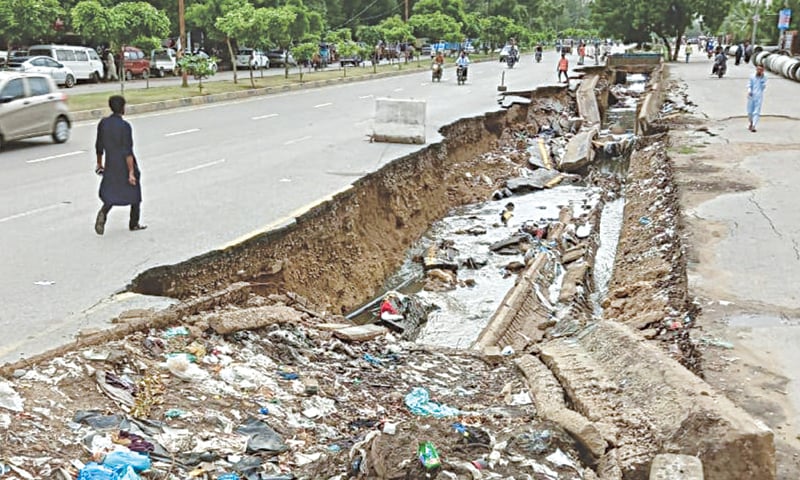KARACHI: Should Karachiites stop complaining about the havoc that monsoons wreak across Karachi? It has become almost a customary exercise now that every time torrential rains paralyse the city, hullabaloo is caused on social and mainstream media, government functionaries come out with some machines to drain the water off the roads, have their pictures and views taken, and after two or three days all is forgotten conveniently.
This time around things do not appear to be that straightforward: civic shortcomings are further deepening the cavernous fault lines that already exist in society. Anyone who can’t see these fault lines is either callous or in denial. Somewhat luckily, July 24 was a Sunday; a vast majority of people were in their homes when the rains came down with ferociousness, clogging almost every street and alleyway in the city by the sea.
The provincial government, pre-empting the next day’s situation keeping weather reports in mind, declared Monday a public holiday for Karachi and Hyderabad divisions, which begs the following question: if they can anticipate inclement weather, can’t they be proactive in not letting rainwater accumulate on the roads and streets where it usually does every year?
Interestingly, the scenes around Governor House and Chief Minister House were evidence enough to suggest that measures should be taken on a war-footing basis before the submerged roads could cause irreparable damage. Sadly, year after year, lessons are not learnt, as if the monsoon season is that part of our collective history from which we can learn nothing.
Architect Arif Hasan calls for a surface water drainage system in city
Speaking of history, after the British conquered Sindh in the early 1840s, they were the ones who tapped into the urban potential of this area, which back then was a small fishing village. So they took all the measures required for proper town planning. Their striking achievement was, however, the awe-inspiring buildings that they constructed. But they did put in place a worthy sewage system, too. What about drainage, though?
Talking to Dawn on Monday, architect Arif Hasan said, “There was a sewage system in those days but the drainage system was not that extensive… kahin kahin tha. There would be open drains on both sides of a road from where sewage and rainwater would drop into a nullah.”
Asked what the British would have done had they been here in the 21st century, the eminent architect replied they would have to make a surface water drainage system to keep things in check.
Given that revisiting the past would not be a plausible idea because at the time there was no or little danger for the city to burst at the seams with population, today Karachi is demographically an extremely challenging piece of land to administer. And that’s precisely the point that the authorities need to take into consideration. Instead of paying excessive attention to social media trends (which are pretty important), they should seriously do some planning to make the city liveable according to its demographic necessities. Otherwise, political fault lines will hurt the politicians more than anyone else.
Published in Dawn, July 26th, 2022













































Dear visitor, the comments section is undergoing an overhaul and will return soon.